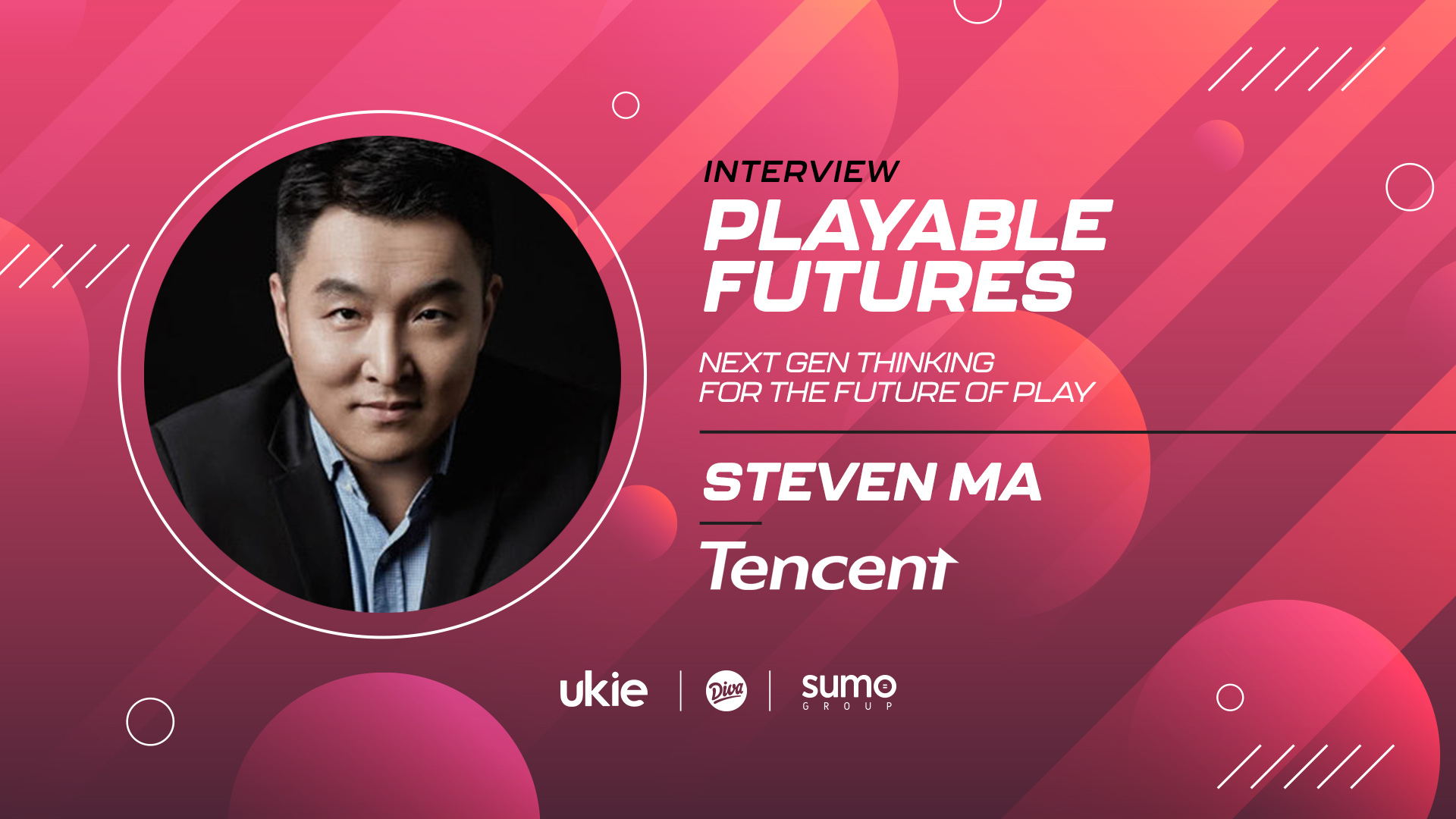Download the full PDF interview
“The Metaverse’s day will come. That day is not today”
Steven Ma, Tencent.
It’s interesting. Beneath all the buzz and fuzz around all things metaverse, it’s only when you get to the people really working at the coalface of online experiences that you begin to understand that millions if not tens of millions of people have been enjoying social online experiences for decades.
And when you look closer, you can start to draw an outline around the areas that bring these experiences together: content, social connection, and the experience itself – the reason for gathering. The value exchange. From our point of view, the destination of where these three vectors overlap is the vision of our mutual Playable Futures. Perhaps.
Reading between the lines of Ma’s piece, it’s fascinating to learn about their own area of focus – the hyper digital reality and the blending of real and digital worlds. The emphasis appears to be on using technology to improve content - from graphical fidelity to gameplay, and storytelling – and encouraging users, players and people as a whole to come together in these online spaces to participate in the moment as a group.
That moment might be endgame content for the largest online multiplayer games of 2022. It could be gathering around a fire in Red Dead Redemption to discuss the day’s events at work. It might be gathering in a virtual world to collectively join in with a shared experience, such as a one off in-game event, or even a concert.
The point is: these things are out there, they are happening, and for millions of people – this behaviour is becoming the norm. Because this is the world of the player. It’s not the metaverse. It’s not Web3. And it’s certainly not the outdated notion of what constitutes being “a gamer”. The point is that these experiences already exist. They are ubiquitous, participatory, and surprisingly accessible.
For us, the idea of The Metaverse is exciting. The theory behind it – it’s genuinely amazing. But we are all too aware, just like every other serious games publisher or developer in the world – the gaming natives, if you will - that creating a one-place-where-all-will-gather-no-matter-what is simply too far away for it to be anywhere near a reality.
What is a reality is that technology and platforms are moving towards a place where they can entertain, at scale, with a regularity and availability that hitherto had been the stuff of fantasy.
It’s getting closer, right?
For us, for our future, and for our clients, while we’re not quite sold on the metaverse just yet. What we are working on is what we might consider to be metaversal activities.
Hanging out in group chat before diving into a night of Warzone with your mates? That could be considered to be a metaversal activity. It’s online, it’s social, and it’s an experience. It’s also – for those taking part in said activity, just “gaming” – and that’s the point.
Gaming was metaversal before metaversal was even a thing. The alignment of technology, online sociability, and – let’s be honest – the pandemic, has meant that we have taken up an interest in these online social shared experiences en masse. We’re not all rushing out to buy VR headsets, no, but we are exploring new ways to make the internet bend to our innate human need for connection.
And it’s that innate need for connection that will drive metaversal experiences forward.
Huge online worlds where we walk through a 3D internet sounds like something from a tech investor’s dream (or the central premise of Wreck-it-Ralph 2 – either work). However, like our SVP of Tencent says: putting the user experience at the heart of this ambition is the only way to realise it meaningfully.
So what does that mean? Well, put it this way: the difference between someone who reads about the metaverse in the papers at the weekend and a developer actively building online worlds for players to interact is that one talks about frame rates dropping and the other… doesn’t.
We know who our money’s on.




